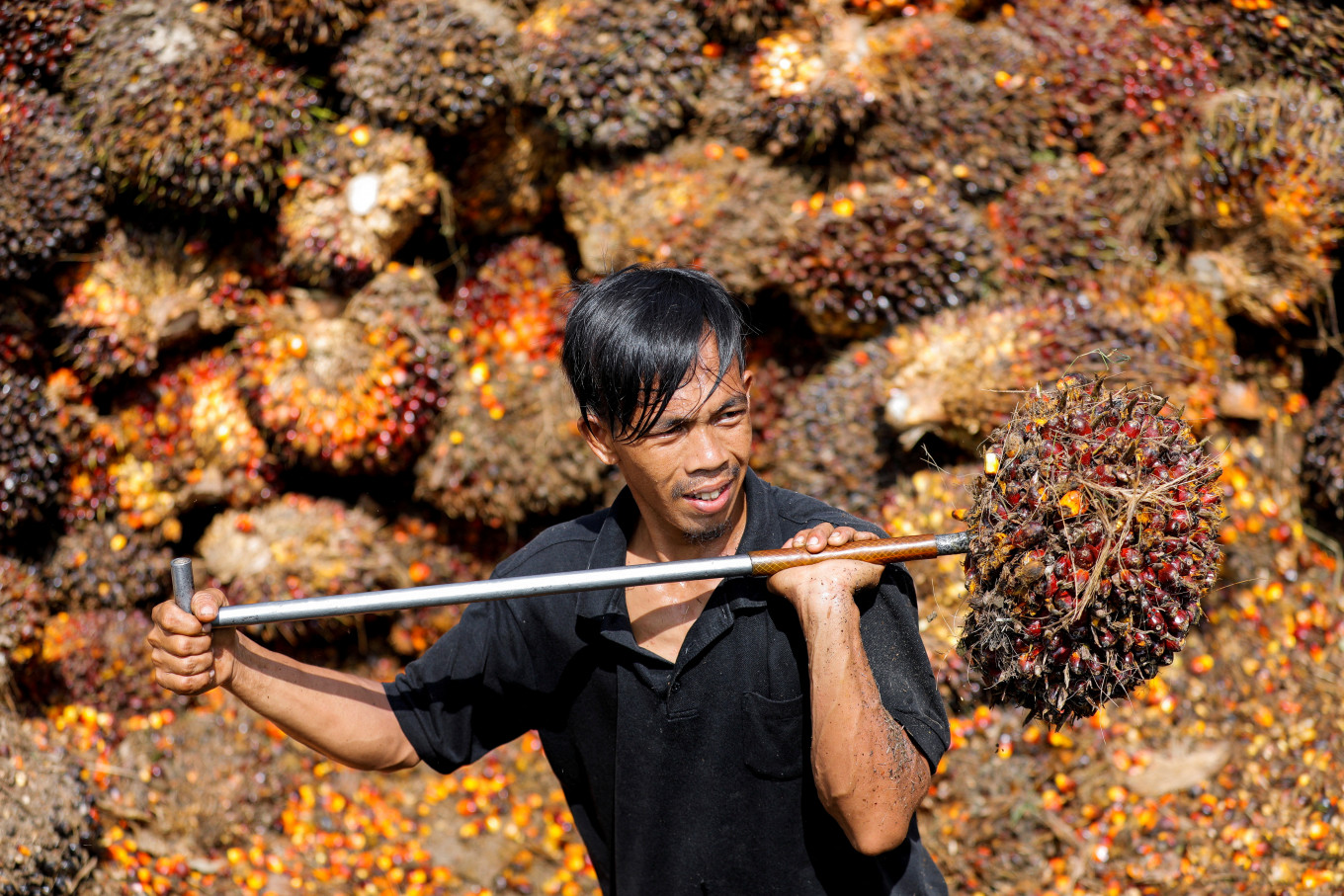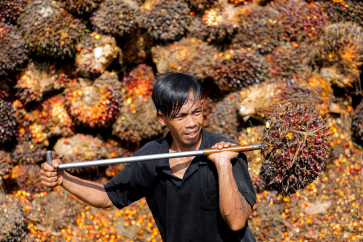Popular Reads
Top Results
Can't find what you're looking for?
View all search resultsPopular Reads
Top Results
Can't find what you're looking for?
View all search resultsCPO exports to drop further as more palm oil goes to biodiesel: GAPKI
The Indonesian Palm Oil Association (GAPKI) expects Indonesian crude palm oil (CPO) exports to decline further in 2023 due to the 35-percent biodiesel blending mandate.
Change text size
Gift Premium Articles
to Anyone
T
he Indonesian Palm Oil Association (GAPKI) expects last year’s decline in palm oil exports, which has been attributed to a volatile regulatory environment and disrupted output, to continue this year.
Indonesia, the world’s top palm oil producer, exported 30.8 million tonnes of palm oil products in 2022, down 8.5 percent from 33.7 million tonnes a year earlier.
A slight drop in palm oil production last year amid rising domestic consumption in the energy sector also contributed to the lower exports, GAPKI chairman Joko Priyono said in a media briefing in Jakarta on Wednesday.
“Biodiesel consumption [in 2022] jumped because the consumption of fuel rose after the pandemic,” he said.
Read also: Limited supply to prop up 2023 CPO prices, but global uncertainty clouds outlook
To reduce diesel imports, Indonesia made palm oil a mandatory feedstock for fuel in 2016 under the B20 program that requires a mix of 20 percent biodiesel with 80 percent petroleum-derived diesel.
The mandatory biodiesel share was lifted to 30 percent under the B30 program, which went into effect at the start of 2020, and it is to be raised to 35 percent in February this year.



















